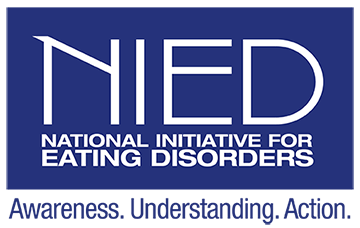What you need to know about Eating Disorders as a family physician
Eating Disorders can be very difficult to diagnose and often go unnoticed for years by friends, family and healthcare professionals.
Many family doctors, who are the first point of contact for people with Eating Disorders, have no idea what to look for because they get very little training in Eating Disorders throughout their medical education. Program Director at Body Brave (www.bodybrave.com), a support centre for those with Eating Disorders, Dr. Karen Trollope-Kumar says this is an issue because most family physicians don’t feel comfortable diagnosing or treating Eating Disorders, allowing them to fly under the radar.
Trollope-Kumar encourages all physicians to take the typical signs and symptoms of an Eating Disorder seriously. This includes:
- Sudden change in weight (either up or down)
- Changes in mood (like heightened anxiety or depression)
- Changes in eating patterns like going on a restrictive diet (paleo, keto, vegan)
Even if these symptoms seem benign at first, ask more questions. Someone who says they are going vegan to protect the environment may still have an underlying motivation to manipulate their body size or shape in an unhealthy way.
Trollope-Kumar says another issue is that family physicians often don’t know where to turn, even if they expect that their patient has an Eating Disorder. Many areas across the country do not have specialized care for people with Eating Disorders, and even those that do (usually in larger city centres) have waiting lists that are months long.
Many family physicians will find themselves supporting a patient who is waiting months for a higher level of care. In this situation Trollope-Kumar says communication is key. Be supportive, non-judgemental and understand that Eating Disorders are complex illnesses, not a fad or lifestyle choice.
It is also important to understand how to properly monitor patients while they are waiting for treatment. The National Eating Disorder Information Centre (NEDIC) (www.nedic.ca) has some great resources on their website outlining what to check and monitor in an Eating Disorder patient. NEDIC is also a great place for any physician who wants to learn more about diagnosing, treating and caring for a person with an Eating Disorder.
Trollope-Kumar says in an ideal world doctors would get more information on Eating Disorders during their medical training. However last year Body Brave and NIED co-hosted the first-ever virtual annual e-conference on Eating Disorders called BodyPeace and together with other organizations across Canada will be launching be launching Eating Disorders University (edU) – another first for Canada. As part of its new education strategy NIED (ww.nied.ca) is focusing on providing skills-based educational programs and resources through this new learning and engagement platform. Check this space for more information as it becomes available.
As a primary physician what would you like to learn about Eating Disorders? If you are a patient, what do you wish your doctor knew?
